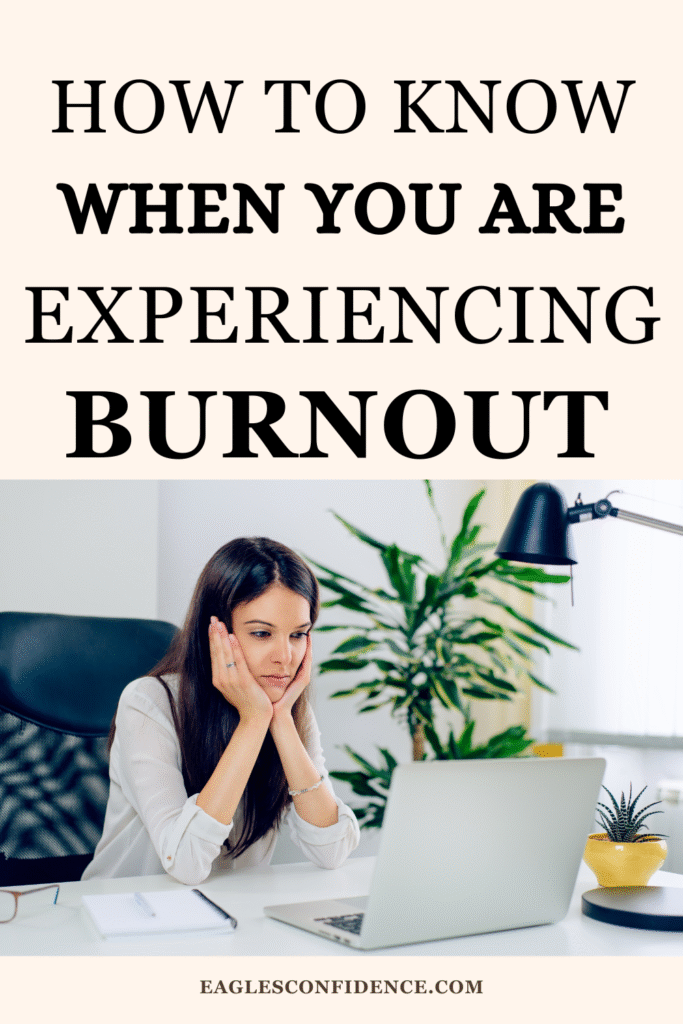Burnout isn’t just about feeling tired. It’s that deep, creeping sense of depletion that drains your motivation, affects your performance, and chips away at your well-being. It’s what happens when stress becomes chronic when you’re running on empty and can’t seem to recharge no matter how much you rest.
Burnout is a complex psychological state marked by ongoing physical and emotional exhaustion, detachment, and a reduced sense of accomplishment. Unlike ordinary stress that comes and goes, burnout builds gradually through prolonged exposure to demanding environments — whether at work, in school, or in personal life. Its slow and subtle nature often makes it hard to recognize until it starts affecting every aspect of life.
Society’s constant push to perform, succeed, and stay productive can amplify burnout, leading to fatigue, anxiety, depression, and even physical health issues. Recognizing the symptoms early is crucial, it’s the first step toward recovery and restoring balance. Understanding the signs of burnout is key to preventing it from escalating. Burnout shows up in both emotional and physical ways, often influencing your mood, productivity, and relationships.
How to Know When You Are Burnt Out
1. Constant Tiredness
If you feel exhausted all the time, that’s the first sign of being burnt out. In fact, you cannot even recall the last time you had a good night’s sleep or felt rested. Your energy levels are at an all-time low. Daily activities like answering emails, attending meetings, or doing household chores require an enormous amount of effort. It feels like a struggle just to get through each day. It becomes increasingly difficult to start or complete any task.
2. Increased Cynicism
As burnout continues, people often feel more cynical or detached from others. You may become easily frustrated with people, uninterested in work, or emotionally disconnected from colleagues, friends, or family. It feels like the things that used to bring you joy or meaning have lost their luster. You may even begin to isolate yourself socially, as interacting with others requires energy you simply don’t have.

3. Decreased Sense of Achievement
Burnout can distort your sense of accomplishment. Tasks that once felt meaningful may now feel trivial or pointless. You might feel like you’re never doing enough, even when you’re working hard. Over time, this can lead to self-doubt, low self-esteem, and a sense of failure — even if your performance hasn’t objectively changed.
4. Inability to Concentrate
Mental clarity takes a back seat during burnout. It feels like it takes more effort than it used to just to focus on the task at hand. You might notice that you’re more forgetful or easily distracted than usual. You could even find yourself struggling to make decisions, further contributing to a lack of productivity. This inability to focus is frustrating, especially if you’re typically a very organized and “on the ball” person.
Related: 8 Simple Ways to Manage Stress
5. Headaches and Muscle Tension
It’s not uncommon to experience frequent headaches, neck or shoulder stiffness, and general muscle aches and pains as part of the physical stress of burnout. This is because when we’re stressed our body releases tension and stress hormones that put our body into a state of alert. Over time this physical tension and stress can become chronic and further sap our energy and decrease our quality of life.
6. Sleep Disturbances
Sleep problems are another one of the most common signs of burnout. You may find that you can’t sleep, lying awake in bed and worrying about the next day’s responsibilities or even things you did the day before. On the other hand, you might sleep more than usual but still wake up tired. When our sleep quality is poor our body does not get the proper rest and recovery it needs which in turn can amplify other burnout symptoms such as feeling exhausted and foggy during the day.
7. Loss of Appetite or Comfort Eating
A sudden change in appetite is another signal that you might be burned out. Some people find that when they are stressed, they lose their appetite altogether. Others may find that they use food as a source of comfort during times of stress and end up eating more. Emotional eating may temporarily soothe the feelings of burnout but more often than not can lead to guilt and sluggishness that further unbalances our overall sense of well-being.

8. Increased Irritability
Burnout can make us much more sensitive emotionally. It’s like we have less “bandwidth” to tolerate stress. Small inconveniences can lead us to lose our temper, snap at someone, or even burst into tears. You might find that your patience for co-workers, friends, or even family members has worn thin. This irritability can negatively impact our relationships, often causing us to feel guilty or regretful about our reactions.
9. Decreased Performance
Motivation and productivity naturally wane when we’re burned out. Tasks that once felt simple or even enjoyable now seem insurmountable or pointless. You may start to notice that you’re missing deadlines, putting off responsibilities, or just generally feeling disengaged from your work. This decrease in performance is not necessarily due to laziness, but rather a signal that your mind and body need rest.
Related: 15 Effective Ways To Overcome Life Challenges
10. Feelings of Hopelessness
One of the final and most significant signs of being burned out is a deep sense of hopelessness or feeling trapped. It can feel like there’s no way out of your situation. You may feel like nothing you do matters or makes a difference. You might also experience detachment, sadness, or even depression if you allow these feelings to linger without addressing them.
Common Causes of Burnout
-
Excessive Workload: Constantly having too much to do leads to exhaustion and feelings of inadequacy.
-
Lack of Control: Feeling powerless or having little say in your tasks, environment, or schedule fuels frustration.
-
Insufficient Recognition: When effort isn’t appreciated or rewarded, motivation naturally declines.
-
Unclear Expectations: Not knowing what’s expected can create confusion and constant self-doubt.
-
Poor Work-Life Balance: When personal time is sacrificed for work, emotional exhaustion follows.
-
Toxic Work Culture: Negative interactions, gossip, or lack of support can quickly erode morale and engagement.

The Role of Self-Awareness in Spotting Burnout
Self-awareness is your greatest tool for detecting burnout early. Paying attention to your thoughts, emotions, and behaviors helps you catch red flags before they escalate. Here are a few effective self-awareness strategies:
-
Journaling: Writing about your day-to-day feelings and challenges helps you notice patterns — like recurring stress or emotional lows.
-
Mindfulness Practices: Activities such as meditation or yoga help you stay present and observe your emotions without judgment.
-
Regular Self-Check-Ins: Set aside time each week to reflect on your energy levels and emotional well-being. Ask yourself: Am I feeling overwhelmed? Do I still find joy in what I do?
These small practices can help you spot burnout early and take action before it spirals out of control.
The Impact of Burnout on Mental and Physical Health
Burnout doesn’t just affect your mindset, it impacts your entire body. Emotionally, it can lead to anxiety, depression, and detachment from daily life. People experiencing burnout often feel ineffective and disconnected from their goals, which can create a cycle of frustration and hopelessness.
Physically, burnout has been linked to serious health problems like cardiovascular disease, diabetes, and weakened immune function. Chronic stress can even lead to digestive issues or unhealthy coping mechanisms such as overeating or substance use.
Without intervention, burnout can evolve into long-term health challenges. Recognizing it early can make a significant difference in both your mental and physical well-being.
How to Regain Balance When Experiencing Burnout
1. Prioritize Self-Care:
Engage in activities that replenish your energy — sleep well, eat nourishing foods, and move your body regularly.
2. Set Boundaries:
Learn to say no when necessary. Protecting your personal time and mental space is not selfish; it’s essential.
3. Seek Support
Talk to trusted friends, family, or mental health professionals. Sharing your experiences can provide relief and perspective.
4. Practice Relaxation Techniques:
Incorporate mindfulness, deep breathing, or yoga into your daily routine to calm your mind and reduce stress.
5. Reevaluate Your Commitments:
Reflect on your priorities. Delegate tasks where possible, take breaks, and focus on what truly matters to you.
By making small, consistent changes and practicing self-compassion, you can restore balance and rediscover joy in both your work and personal life.
Conclusion
Burnout doesn’t happen overnight and neither does recovery. It’s a gradual process that begins with awareness, followed by intentional steps toward rest, healing, and realignment. Listen to your body, honor your limits, and remember: taking care of yourself is not a luxury; it’s a necessity for long-term success and happiness.
Save the pin for later

- 10 Signs of a Cheating Partner You Should Never Ignore - January 11, 2026
- 10 Effective Ways to Practice Gratitude - November 20, 2025
- 12 Everyday Habits That Can Diminish Your Memory Power - November 15, 2025




